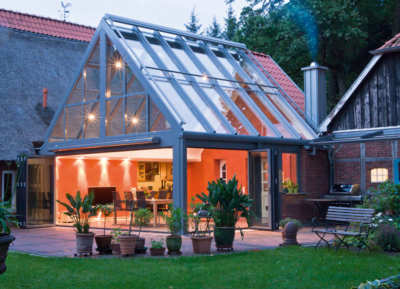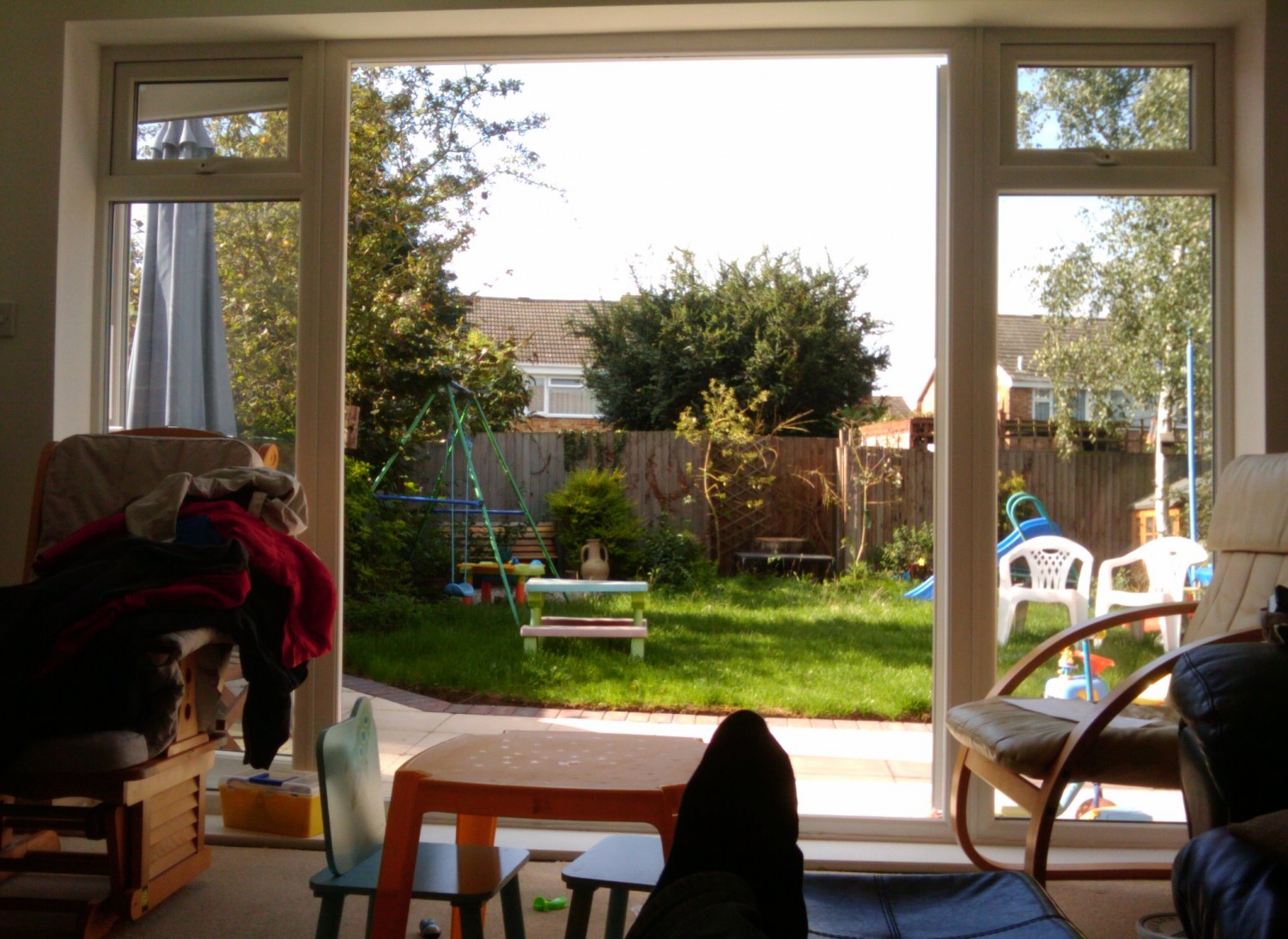Will A Conservatory Or Extension Make The Better Choice For Your Home?
When I decided to build a rear extension, I had originally considered installing a conservatory and knocking down the rear wall to make a large, open-plan space. However, I eventually opted for an extension when I found out how much it was going to cost just to knock my walls down.
I have had many discussions with friends and family since about the merits of both, so thought it was time to share them, so today I will look at both conservatories and house extensions, their pros and cons, and what could be the best options for your home.
If you’re struggling to decide whether or not to add a conservatory or an extension to your home, this guide will hopefully help you weigh up the advantages and disadvantages of each structure.
The Pros of Conservatories

A Winter Garden Conservatory
If you want to bring the outside in, then a conservatory is a great way to do it. Use a variety of different style windows, add in some bi-fold doors and you can enjoy your garden and the sunny summer weather for hours on end.
By their very nature, conservatories have a great proportion of glass than extensions, so you will easily create a light, airy space, with easy access to the garden. When it comes to the way they look, in my opinion, conservatories almost always look more stunning than a brick extension with plasterboard walls and tiled roof. Take a look at these “winter garden” conservatories, which bring light and space to an otherwise cramped home, and allow you to enjoy a garden all year round.
Sometimes the benefits will come from the materials used in construction. PVCu conservatories are known for low maintenance, long lasting, and unlike timber or metal frames, not subject to rotting, corrosion, or rust. This makes them cost competitive compared to other options.
The location of your conservatory can also bring with it advantages. East facing, and you’ll have sun in the morning, west facing, and you’ll catch it towards the end of the day, and North will get a bit of both, but could be very cold in winter. If your aspect is south facing then your conservatory will be lovely and warm in the summer, but it could get uncomfortable during the hottest part of the day, so plan for ventilation and blinds.
A modern conservatory can really be used for any purpose. As well as making a lovely day room, they can be used as a dining room, children’s play room or even, with some additional plumbing, a kitchen.
The Cons of Conservatories
Although conservatories can make excellent use of technology to provide different types of energy efficient glass, in colder months they can still be harder, and more expensive, to heat. If you want a space to use all year round, then seek professional advice on how best to heat it, and retain warmth in the winter months.
Temperature control is important, it’s not just about heating and cooling, it’s about achieving the right balance, and even with choosing glass carefully and fitting blinds you may still have issues. The readers on this site offer plenty of useful tips and solutions to heating and cooling issues, such as choosing the best quality double glazed windows. Installing underfloor heating can also help to keep the whole room feeling much warmer, and many people install wood burners to ensure that the rooms can stay really warm all winter.
For some people, the noise of bad weather can be an issue, although it may not apply to all types of conservatory, some types of roof will attract a lot of noise if you have rain or snow. Doors between the conservatory and main house may well get used then.
The Pros of Traditional Extensions

An extension with large patio doors provides a good comprimise
They offer more flexibility on size and location – you will find that traditional extensions will end up being a mix of permitted development (won’t need planning permission) or projects that will need planning – such as a side extension which could have a big impact on the appearance of the area.
That said, you may have a lot more choices open to you, such as front or rear extensions, extending into the roof to add extra space, extending one room or the whole of the back of a property, or choosing between one and 2 storey extensions.
They offer different ways to use the space, such as a new kitchen, bedroom, living room, dining area or play room for children.
Extensions can be in use all year round. By their nature, extensions are a lot warmer than conservatories and in use all year round, thanks to insulated walls and roof. As good as modern glazing is, it will never be as effective as a cavity wall filled with 10cm of insulation.
Additional bedrooms are a popular choice for extensions and have got the vote of industry experts as a home improvement that will add the most value to the asking price of your property.
The Cons of Extensions
Consider possible changes in costs. A building estimate will give you a good ballpark figure for costing out your extension, but there may be variations during the process. Your builders may discover additional work. Design and planning may change due to unforeseen items, such as drains or foundations. Builders can only work on what they see and the information you give, so the process could bring up obstacles and extra costs.
You could experience disruption during the construction process. Building an extension is a much bigger undertaking than building a conservatory and could cause issues from taking up a lot of space with tools and materials, to general mess. Depending on what you are building/changing/extending you could also be without living space, cooking space, or your bathroom could even be out of action for a while. Make sure you ask about any disruption or health and safety issues well in advance so you can make plans, and minimise the hassle.
Consider specialised extensions. There may be a genuine need for a very specialised extension, such as one equipped for someone with special needs or disabilities, but you may want to factor in the costs of changing this if you move. If you have dreams of a hideaway bar or Jacuzzi in your new extension, remember they may not have any appeal or value to prospective buyers either.
A lot of your decision making will come down to personal choice, any limitations presented by the house/garden or planning regulations, and budget. It’s best to go into the process open-minded, but be aware of any pitfalls or issues your choices might create, and any decisions or financial requirements you might need to factor into your project. Both can provide huge improvements to the way you live in and enjoy your home, in fact, it is for this reason than many people end up having both.
As a final thought – my opinion is that conservatories should only really be added when there is sufficient living space within the rest of the house. A conservatory should not replace adding another room, but it can certainly compliment it well.

